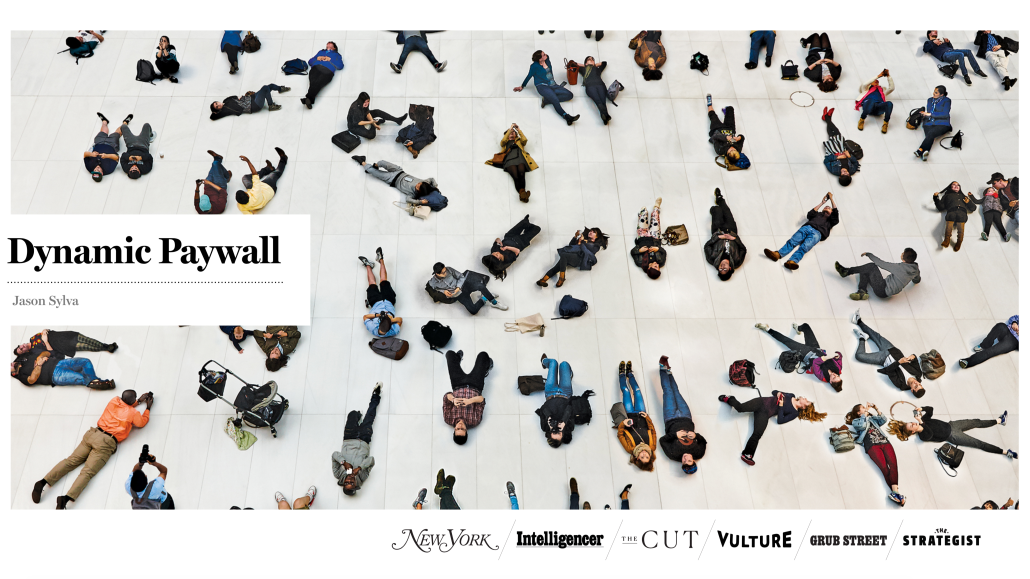New York Magazine Jason Sylva on how to launch a paywall

In theory, a flexible paywall allows a publisher’s audience to develop more of a habit, hit advertising campaign goals more easily, and test out more hypotheses. But it also risks confusing readers. In this presentation from Digiday’s Hot Topic: Subscriptions and Commerce, which took place in New York City this past February, hear from Jason Sylva, general manager of consumer marketing revenue at New York Magazine, as he discusses its decision to go with a dynamic paywall. The key hits:
- Information like when, where and how consumers are interacting with your content can help you determine strategic perimeters for the paywall.
- When introducing a paywall, many publishers run into problems with it impacting their advertising business. To find a balance, consider leaving the paywall off of one-off pieces, such as television recaps or event coverage, and instead drive it on some of the more in-depth reporting.
- Optimize, but also learn: Optimizing focuses on existing demand, and learning enables you to build a more sustainable business.
Listen to this presentation on the Digiday Live podcast here.
More in Media

Meta AI rolls out several enhancements across apps and websites with its newest Llama 3
Meta AI, which first debuted in September, also got a number of updates including ways to search for real-time information through integrations with Google and Bing.

Walmart rolls out a self-serve, supplier-driven insights connector
The retail giant paired its insights unit Luminate with Walmart Connect to help suppliers optimize for customer consumption, just in time for the holidays, explained the company’s CRO Seth Dallaire.

Research Briefing: BuzzFeed pivots business to AI media and tech as publishers increase use of AI
In this week’s Digiday+ Research Briefing, we examine BuzzFeed’s plans to pivot the business to an AI-driven tech and media company, how marketers’ use of X and ad spending has dropped dramatically, and how agency executives are fed up with Meta’s ad platform bugs and overcharges, as seen in recent data from Digiday+ Research.








